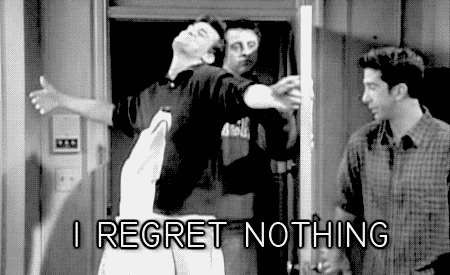When readers complain about tropes, it’s because they’ve seen those plot devices over and over in other stories and have a gut oh-no-not-this-again reaction. True, one could easily argue that every idea has been already written, and this may indeed be the case when you examine an isolated description of a trope. For instance, take the friends-to-lovers theme. There are lots of romances with a friend-to-lovers theme. If done well, a friends-to-lovers theme can generate deep emotions and positive responses. So what differs between a time-tested theme and a tired old trope, and is there anything we can do to avoid committing the latter?
The following are just three short examples out of a list of many possible tropes. The broader principles I’ll discuss can apply to lots of different genres, but as I’m working on a romance right now, I’ll focus on romance.
The Massive Miscommunication
– A character acts unwisely because of a misunderstanding or misinterpretation of something that his/her love interest did or said.
– etc.
Why not try…
Ready for this one? How about some honesty? While your characters aren’t perfect and can have the occasional misunderstanding (because they are only human), the misunderstanding or miscommunication should not be the main source of conflict. When I was in college, my boyfriend behaved like a total jerk to me for the equivalent of 167 pages of my life. I later found out that it was because he was stressed out about the fact that we’d both be graduating at the end of the year, he really did love me but the future was uncertain, his parents were pressuring him to make a choice, etc. We would have had a much more interesting conflict if he had just been honest with me and if we’d had to deal with these multiple sources of conflict.
– Two desirable characters vie for the attention of a single love interest.
– A character has deep feelings for two other people and just can’t decide.
– A character is expected to have deep feelings for one person (because of parental or social pressure) but really has feelings for someone who defies parental or social pressure #rebel
– etc.
– The entire plot revolves around this love triangle with no growth or change in the love interests.
– The rivals are both swoon-worthy and attractive, and their love interest is atypical (perhaps geeky or clumsy or unpopular)
Why not try…
This is actually a fairly tough one because love triangles definitely walk that fine line between overdone and well-done (like when you’re cooking a steak). Characters have to make tough choices all the time, and love triangles, when done well, may be a powerful means to do so. However, when used solely as a plot device to create reader cheering sections, it can fail. If the love interests themselves do not change within the dynamic, it can fail as well. If you decide to write a love triangle, the key to avoiding disastrous effects of this trope will lie in the uniqueness of and dynamics among your characters. Be original in thinking about how the vertices of the triangle interact. Perhaps they aren’t fighting for your MC in a possessive “he’s/she’s mine” fashion but in a way where the three are walking in parallel.
Examples:
– A character kisses (or does much more) with his/her love interest and wakes up with regret, guilt, and remorse.
Red flag: The morning-after regret creates the main conflict between the characters after “the morning.”
Why not try….
Sure, we’ve all done something like this at one point in our lives, but we move on. Try making your character more of an adult (unless you’re writing YA, and then, well… being more of a young adult) and waking up not with an oh, crap moment that lasts 167 pages but more of a Wow, okay, and now where do we go from this? moment. This can build sexual tension in a way that leaves us wanting to know the same question. Take a risk and try the “no-regrets” or the “fewer-regrets” approach. Who knows? It might be a better twist of this tired old trope, and your characters might like it better too.
What are some other examples of tropes in romance that you personally avoid? I’d love to hear from you!
* BookRiot has a great post with story trope BINGO cards, for several different genres.
___________________________________________
 Helen Boswell loved to get lost in the pages of a story from the time she could sound out the words. She credits her dad, an avid fiction reader, with encouraging her to read ALL OF THE BOOKS on his shelves from the time she was a teenager. An author of both urban fantasy and contemporary romance, she loves to read and write characters that come to life with their beauty, flaws, and all. She is the author of the urban fantasies MYTHOLOGY, THE WICKED, THE ETERNAL, and contemporary romance LOSING ENOUGH and SCARS RUN DEEP (coming soon). You can find out more about her at www.helenboswell.com.
Helen Boswell loved to get lost in the pages of a story from the time she could sound out the words. She credits her dad, an avid fiction reader, with encouraging her to read ALL OF THE BOOKS on his shelves from the time she was a teenager. An author of both urban fantasy and contemporary romance, she loves to read and write characters that come to life with their beauty, flaws, and all. She is the author of the urban fantasies MYTHOLOGY, THE WICKED, THE ETERNAL, and contemporary romance LOSING ENOUGH and SCARS RUN DEEP (coming soon). You can find out more about her at www.helenboswell.com.



